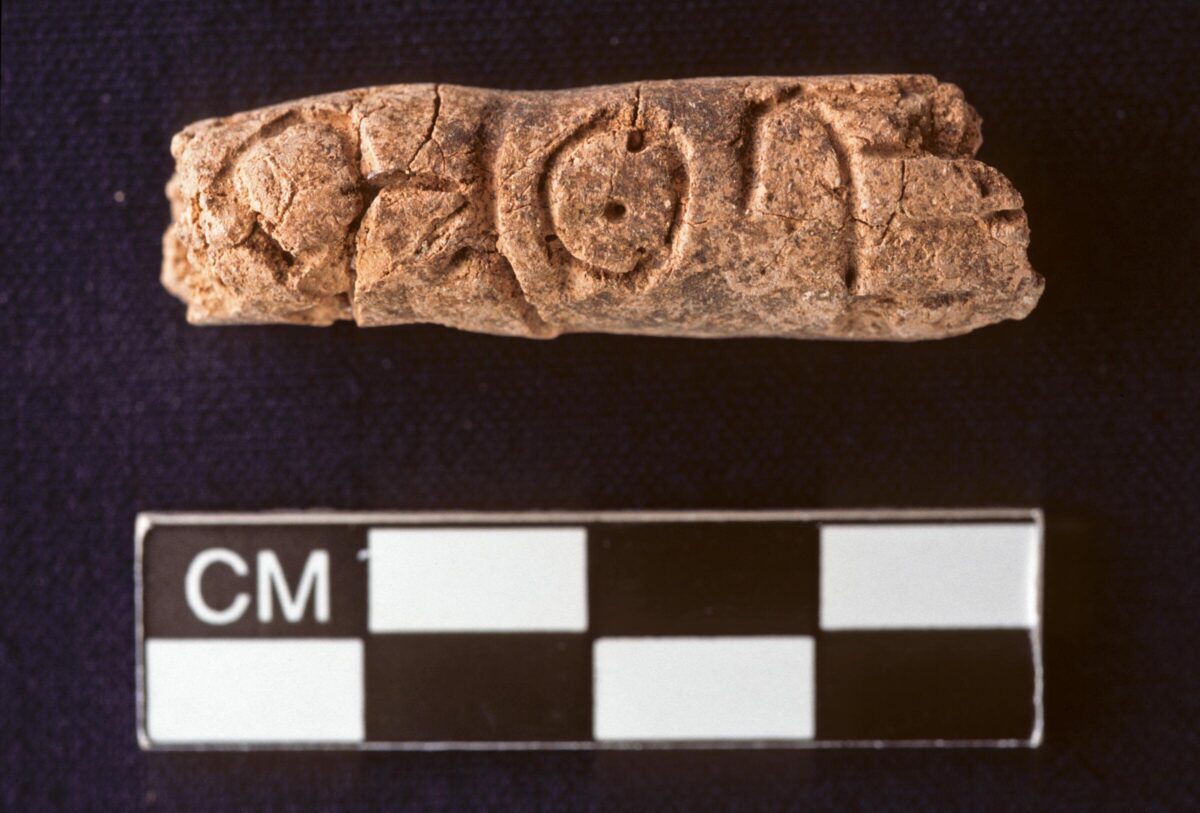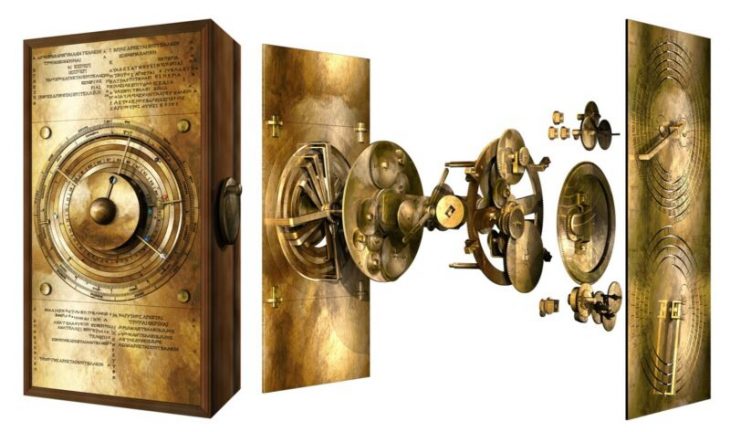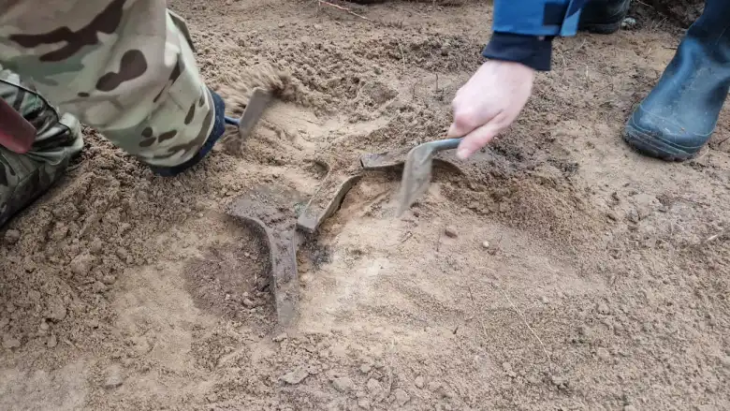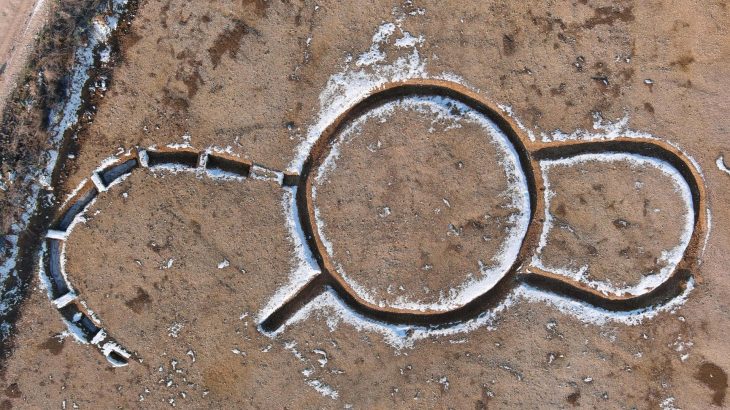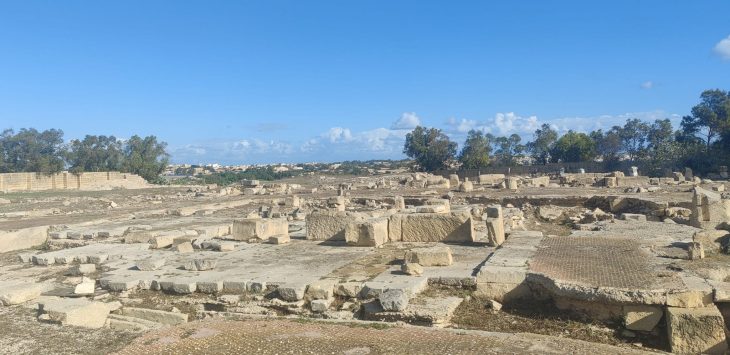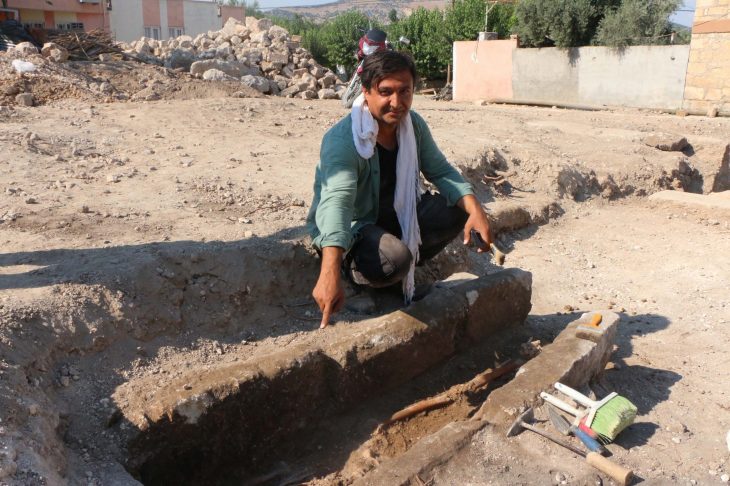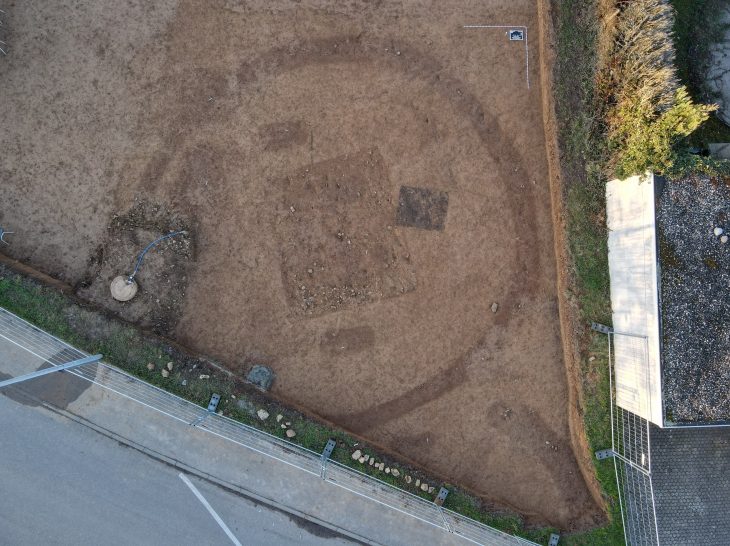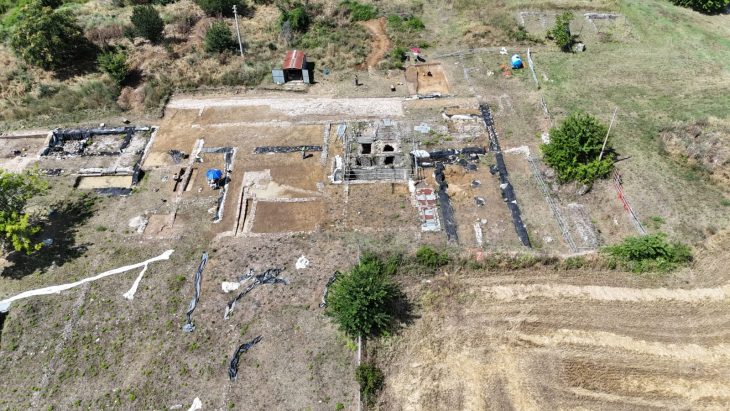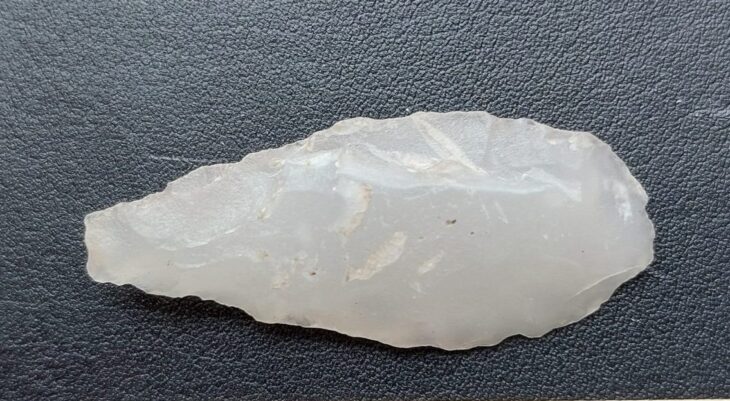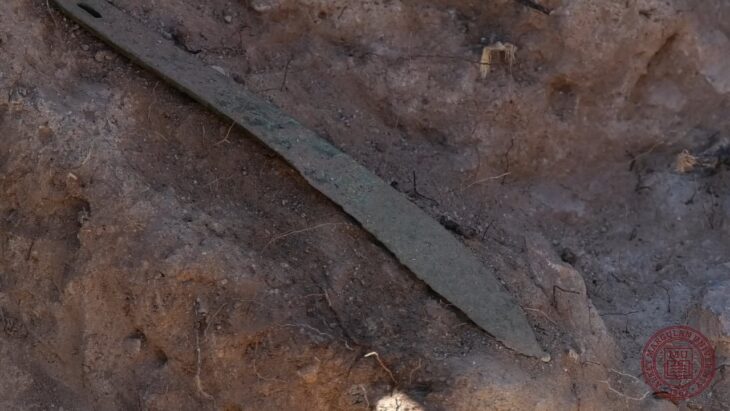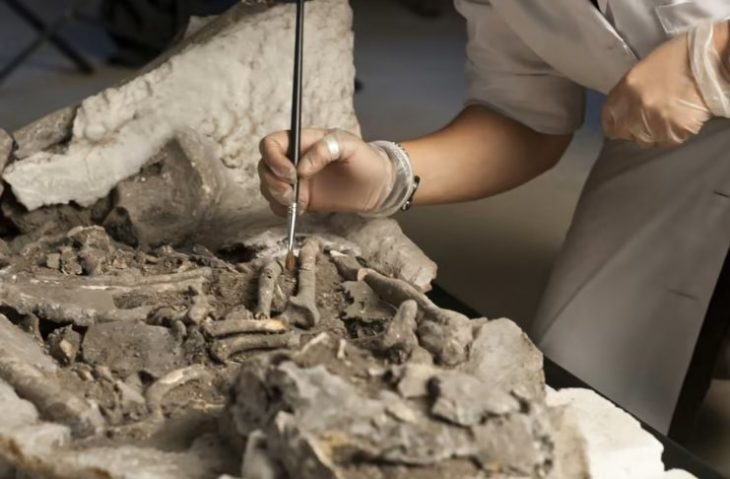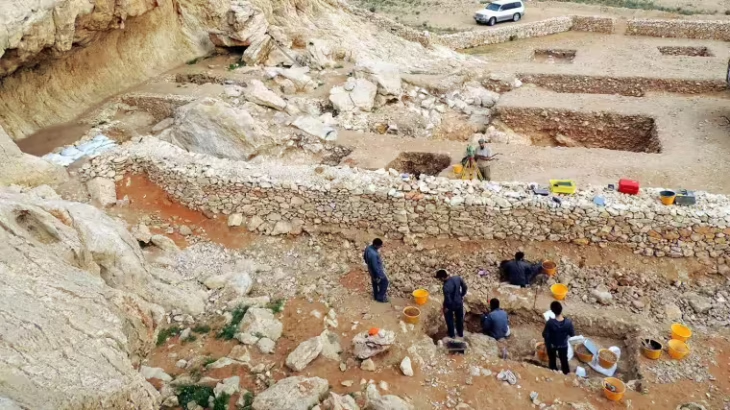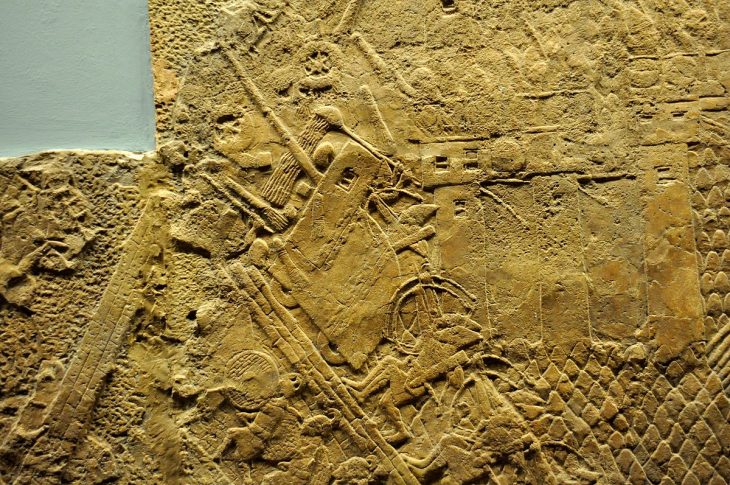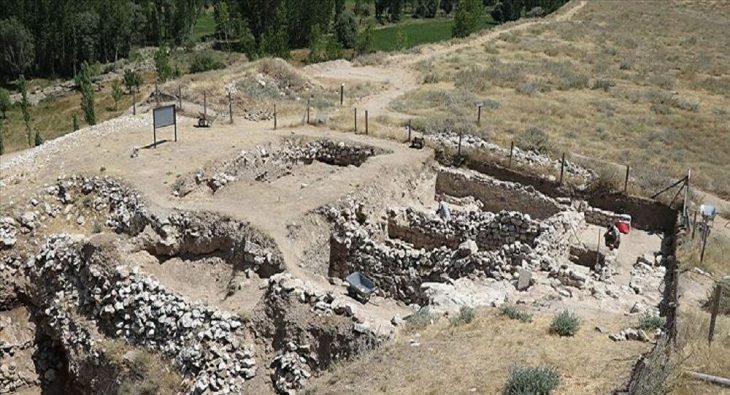Johns Hopkins University researchers uncovered evidence of the oldest alphabetic writing in human history. The writing was etched onto finger-length clay cylinders discovered during a dig at an ancient Syrian city.
The discovery was announced at the American Society of Overseas Research (ASOR) annual meeting.
During an excavation at an ancient tomb in Tell Umm-el Marra, the team, under the direction of Professor Glenn Schwartz, discovered small clay cylinders marked with what may have been alphabetic symbols.
Once a major city in western Syria, Tell Umm-el Marra is renowned for being one of the first urban centers in the area. Along with researchers from the University of Amsterdam, Professor Schwartz, an authority on ancient cities, co-led a 16-year excavation at the site. Early Bronze Age tombs were found during the excavation.
One of the best-preserved tombs contained six skeletons, gold and silver jewelry, cookware, a spearhead, and intact pottery vessels.
Four small clay cylinders that looked to have early alphabetic writing were discovered by researchers close to the pottery vessels. Each cylinder had a hole in it, and the clay was only lightly baked. According to Professor Glenn Schwartz, the items may have served as labels.
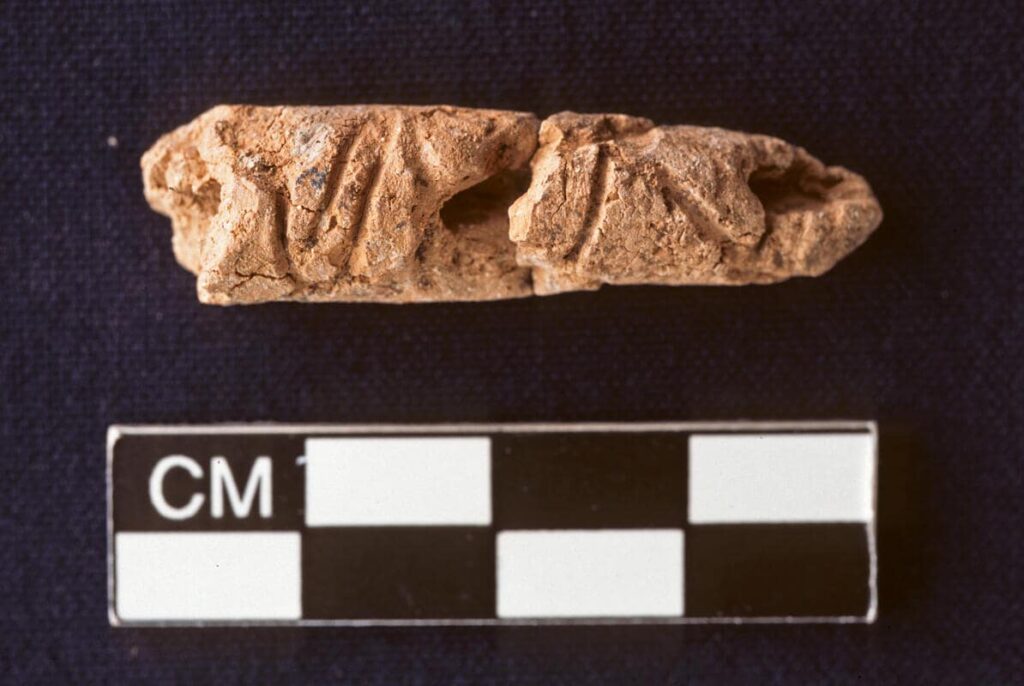
The writing, which is dated to around 2400 BCE, precedes other known alphabetic scripts by roughly 500 years, upending what archaeologists know about where alphabets came from, how they are shared across societies, and what that could mean for early urban civilizations, according to the researchers.
“The cylinders were perforated, so I’m imagining a string tethering them to another object to act as a label. Maybe they detail the contents of a vessel, or maybe where the vessel came from, or who it belonged to,” Schwartz said. “Without a means to translate the writing, we can only speculate.”
Using carbon-14 dating techniques, researchers confirmed the ages of the tombs, the artifacts, and the writing.
“Previously, scholars thought the alphabet was invented in or around Egypt sometime after 1900 BCE,” Schwartz said. “But our artifacts are older and from a different area on the map, suggesting the alphabet may have an entirely different origin story than we thought.”
Professor Schwartz presented the findings at the 2024 American Society of Overseas Research (ASOR 2024) annual meeting.
Cover Image Credit: The 4,400-year-old clay object discovered at the ancient city of Umm el-Marra, Syria. Glenn Schwartz, Johns Hopkins University.

